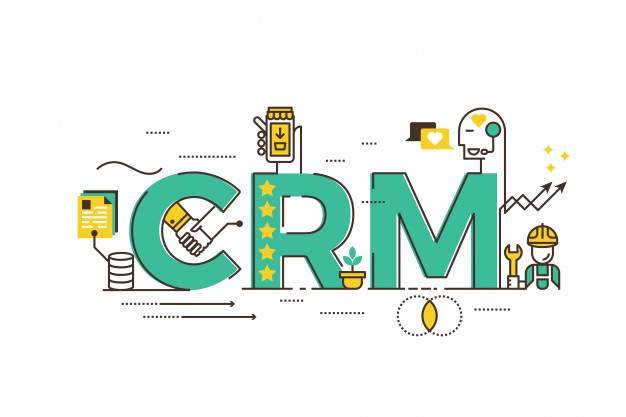Effective Custom CRM For Retail Business

The progressive evolution of eCommerce stores and m-shopping has changed the marketing landscape. From creating effective buyer persona’s to personalization, the B2C space has undergone a drastic advancement, thanks to the effective use of CRM software.
Today, some significant CRM service providers have discerned the eCommerce emergence as one of the best business prototypes to execute their innovations. Moving from a similar, traditional approach to a personalized, more effective mode, CRM innovators are extending advanced features, crafted to adapt to every size & shape of industries.
Are you one of those retail owners that want to improve your customer experience? Or, save time over operations? The uses of using bespoke CRM for your retail business are immense! Now, if you want to get deep down in retail CRM and know its benefits, you are going through the right blog.
This piece will enrich you with all the basics of CRM for the retail and e-commerce industry. Let’s get started.
What is Retail CRM?
Customer Relationship Management(CRM) system compiles and regulates consumer data to deliver productive communication from a business to its customers. It focuses on improving customer retention, streamlining the conversion cycle, and improving the opportunities of up-sell.
Retail CRM software is primarily aimed at conducting an in-depth analysis for improving the chances of executing sales & conversions across the business.
Features of CRM
Today, you can find various CRM services in the industry, with most service providers offering universal solutions for all industries.
There are many business-specific CRM software, focused on catering to fulfill the retail and eCommerce industry requirements. Further, some custom CRM software service providers also invest in technical DNA and employ significant data capabilities for improving the approach of their business operations.
Listed below are some standard features of using CRM:
- Task Management
- Email marketing
- Contact management
- Social media integrations
- Reporting and Analytics
- Calendar and Reminders
Here are some business-specific features of CRM
- Return Management
- Merchandise management
- Mail order
- Order management
Impact of CRM?
CRMs are the mission management hub of retail and e-commerce with features that impact various functions and act as a powerhouse. Here are some significant effects of CRM usage in the retail sector:
Promoting Brand allegiance
If you have prior information about someone’s background, it becomes relatively easy to contact them. Moreover, it becomes even simpler to win customers with specific insights around them (tastes, preferences, likes .etc). CRM offers organizations a fantastic opportunity to improve sales and nurture brand loyalty.
Personalization opportunities
Personalization is an incredible marketing procedure, broadly employed by the retail industry in both the online and offline landscape. CRM is a software that permits extensive subtle personalization. It can be operated at any stage of the marketing funnel and any mode of communication.
Have you ever received a birthday message from any of the e-commerce websites? Or, Received special discounts on your anniversary? Yes, these are some of the personalization opportunities that help propel sales.
Top customer segment optimization
Data collection and interpretation helps businesses to segment loyal or top customers. Loyal customers are the top creme of your customer base.
By utilizing CRM’s segmentation aspects, an enterprise can segregate the prime 5%, 10%, and 15% into specific groups and examine them to:
- Maximize profit from your existing customer base
- Surge success rate and attract clients
- Develop personalized advertisements for top-rated customers
- Socially interacting with the customers to comprehend their opinions towards the label.
Benefits of Customized CRM services
Automate data entry
CRM acts as the powerhouse and alleviates tasks such as logging emails, calls, exchanges, and meetups. All this information gets compiled and aggregated within the network.
Besides, a CRM allows the reps to revamp all deals and then automatically handle the rest of the process.
Reminds to follow up
CRM tracks all the prospect’s activity, which helps your team remind the consumers of routine follow-up. When employees are reminded about specific follow-ups, they can extend the point of contact when the consumers need it the most. This helps the salesperson to increase their chances of lead conversion.
Categorize contact data
CRM enables users to track every contact and the related data easily. They can even look at contact history and see how many times a client visited the website. Reps can record notes from business meetups, calls, emails with the prospect. Plus, you can avail of this data anytime within the CRM software.
Segregation of your customer base
Have your team ever wanted to create a contact directory to reach out to clients as per specific criteria? CRMs enables users to create and sort contacts by the data that has been stored for ages.
Things to consider before building a customized CRM
Drive your focus on the ‘R or ‘relationship aspect of CRM
Instead of focusing on R in CRM, most people employ it as a transactional database to know the prospect, consumer, or client’s status. The key is to make your team understand and teach the variation between data entry and real relationship with the consumer.
List your necessities
With so many service providers, it is hard to be focused on what you want. Such advanced features may or may not help businesses. Do not look at the potential CRM service provider list of features; instead, build one feature list that suits your business requirements.
Go for potential ROI
Before implementing software that needs upfront and recurring costs to maintain, quickly calculate the numbers to scale the potential return on investment.
Conclusion
Competition seems enormous in the e-commerce industry, so staying ahead of others is the best solution to win. Nowadays, more and more businesses are adopting CRM software that is tailored for online retail. CRM platforms help companies keep up with the industry’s needs, and choosing the right one is essential.




